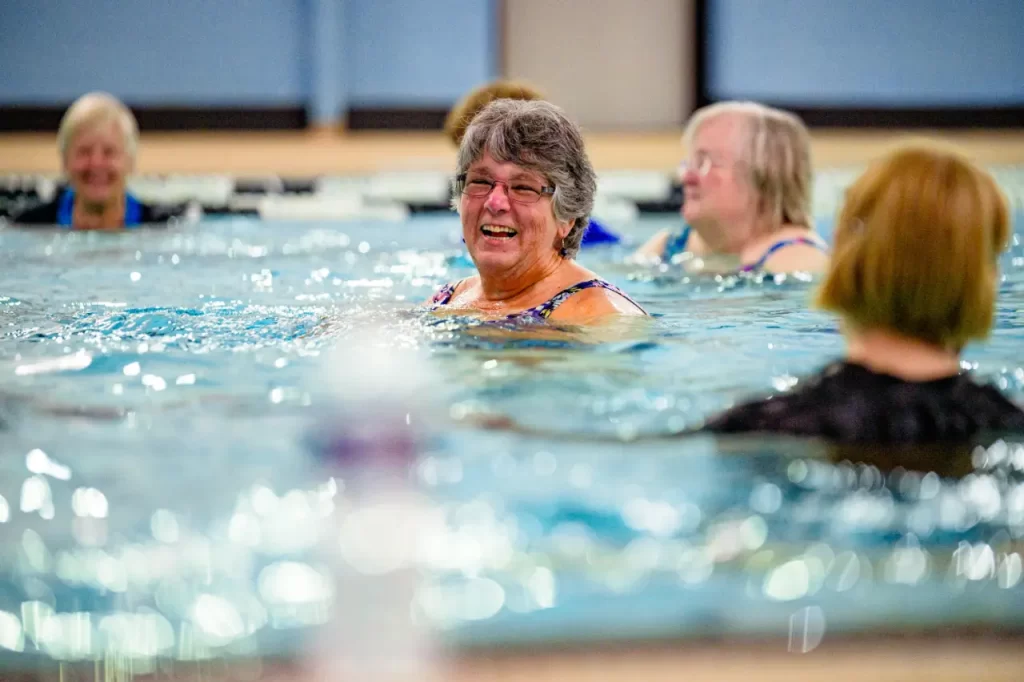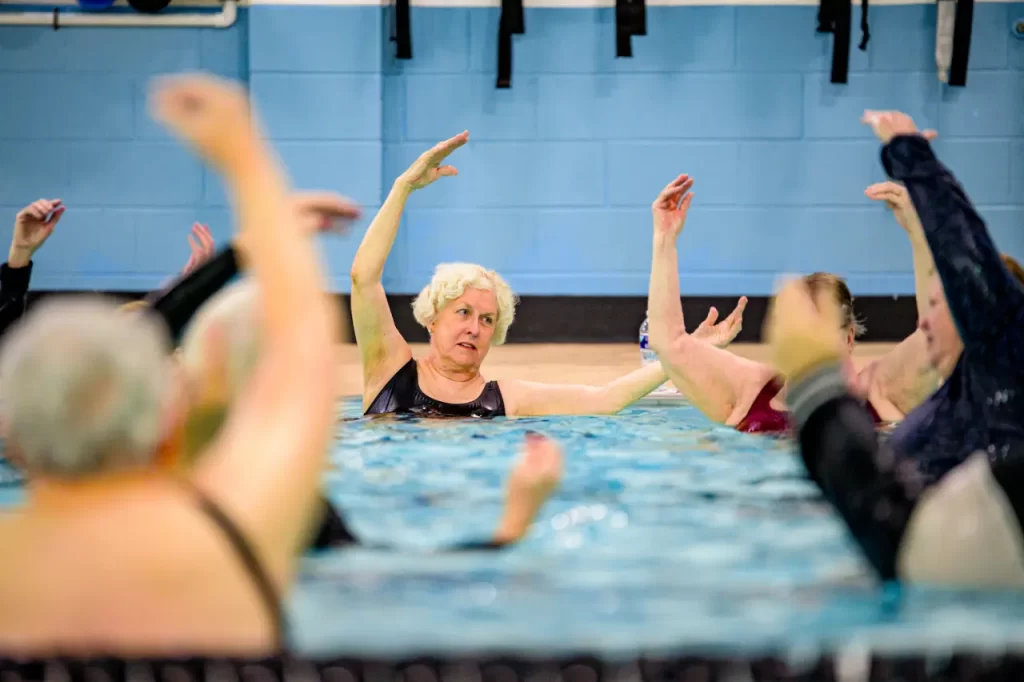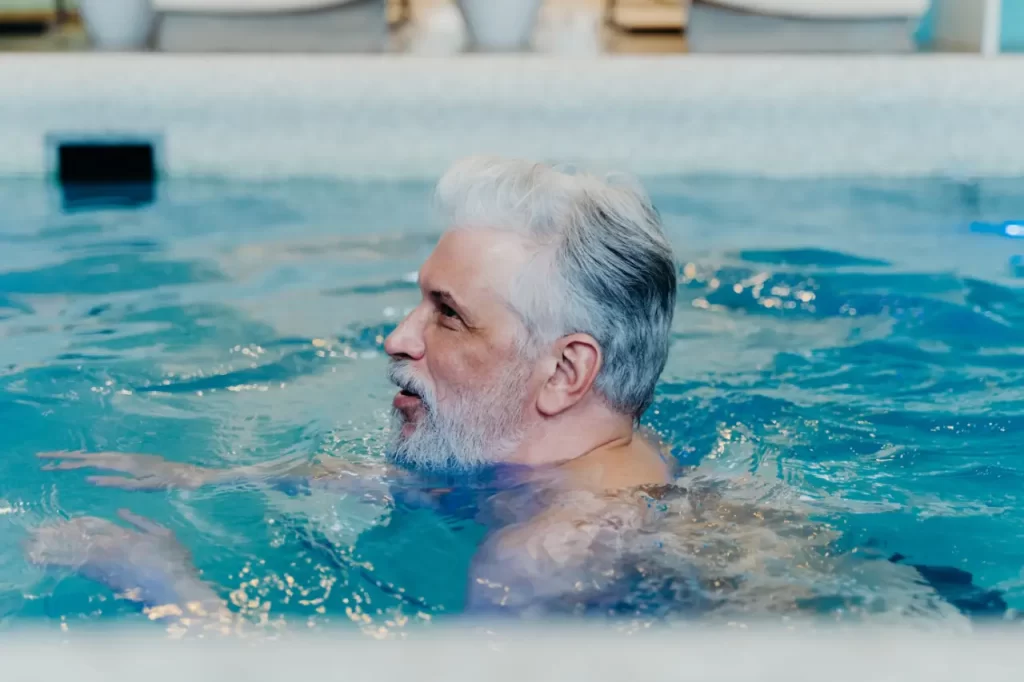MedicalAlertBuyersGuide.org is an independent review site. We may earn compensation from the providers below. Learn More
Put the Fun Back With Swimming As We Age
Getting older doesn’t have to mean having no fun anymore. And even if our bodies get more frail as we age, swimming is an activity that almost everyone can take up, and it helps to keep us healthy – and have fun – like no other sport can.

The one vow we all take for ourselves, especially as we get older, is: first, do no harm. And swimming is acknowledged as perhaps the most low-impact beneficial activity. There’s almost no risk of injury from swimming, except for drowning of course, and hopefully as we get older we’re smart enough to know better than to drown – that would be very counter-productive.
Swimming is easy on the body’s many joints, which is where we tend to seize up a little as we age. For those with chronic pain, arthritis or other mobility impairments, the buoyancy of water is a blessing. It is less spoken of among the many benefits of swimming, but simply floating, being buoyant, is fun – we can sit in the water on a floatie, whether at the lake or in the pool, and just smile and feel good. And feeling good helps everything else.

Moving around in the water is what swimming is all about, of course, and whether it be swimming laps or a group exercise, the very act of swimming is already working on our body, improving just about everything that we would like to be improved. Heart health may be the one we care about most, and swimming cares about it too. Swimming is an excellent exercise for cardiovascular health, helping to increase blood circulation while lowering blood pressure, and keeping stroke and heart attack at bay.
We get stronger and more slender, just from swimming – that’s how good an exercise it is – when all the time we just thought we were having fun. It works the muscles in ways we don’t notice, increasing flexibility and joint motion, as well as increasing muscle mass from the exertion. All this burns calories of course, and we all know what that means.
The body is actually improving its refined skills through swimming, which challenges balance and coordination through the different strokes and movements, and these improvements transfer onto land afterwards too. It helps breathing, both from being exercise and from the discipline involved in breathing without taking a mouthful of water.
Cognitive improvements come from regular swimming, although science is not precisely sure how. But studies have shown this, both in young children and elders. And because it’s physical activity, swimming makes us tired in the healthy way that promotes better sleep.

All of this reduces stress, from getting enough oxygen to reducing pain, to feeling in better physical trim, and to having fun. Social interactions can very easily be a part of this too, either from swimming with friends or joining a group, or simply from sharing a laugh with that other person drifting on a floatie.
Swimming: it’s what water was made for. Always check with your healthcare provider before you undertake any new regime, and assuming the light is green, go get wet, and know that the inevitable effects of aging on the body can at least partially be countered with a swimming routine.

